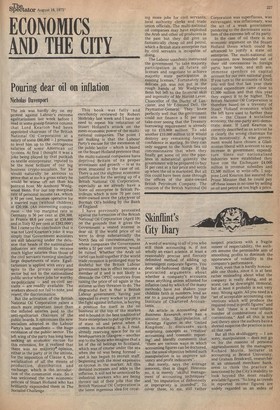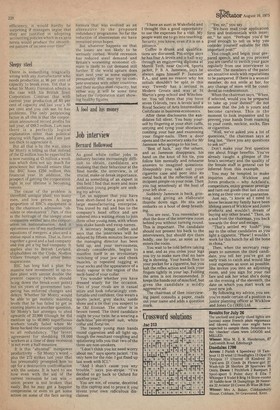Skinflint's City Diary
A word of warning to all of you who still think accounting is, if not wholly an exact science, at least a reasonably precise and fiercely delimited method of adding up intransigent corporate figures. You dear old-fashioned things. If the protracted arguments about whether a company's accounts mean anything unless adjusted for inflation (and by which of the many methods) have not shaken your childlike faith in numbers, lend an ear to a journal produced by the Institute of Chartered Accountants.
An article in Accounting and Business Research even has a sinister title: 'Manipulation of Earnings Figures in the United Kingdom'. It discusses such surprising concepts as 'creative' accounting and 'cosmetic reporting' and blandly comments that "there are various ways in which accounting figures can be doctored, but the usual objective behind such manipulation is to improve solvency and profit indicators".
But surely, says the average innocent, that is illegal. Heavens no, it is merely "skilful management of accounting techniques" and "no imputation of dishonestly or impropriety is intended". To cover these, to me, still rather suspect practices with a fragile veneer of respectability, the authors assume the permissible aim of smoothing profits to diminish the appearance of volatility in the company's performance. _
Well, even that is hardly honourable one thinks, since it is at best rather misleading about what the company is really doing, and at worst can be downright immoral, but at least it probably is not very easy. Wrong again All you need is a ."set of acceptable accounting conventions which will produce the required trend in profit figures" and in fact -there is a near-infinite number of combinations of such conventions." And all this is not just theory since the authors have a shrewd suspicion the practice is not all that rare.
But all this skulduggery I am sorry, manipulation does not go on for the reasons of personal aggrandisement by the managers. Richard Morris, lecturer in accounting at Bristol University, and Graham Breakwell, researcher at an unnamed merchant bank, seem to think the practice is sanctioned by the City's inability to look beyond the most readily available figures. "So long as trends in reported income figures are widely regarded as an index of efficiency, it would hardly be surprising if managers argue that they are justified in adopting accounting policies which in ex ante terms would produce the smoothest pattern of income over time"



































 Previous page
Previous page